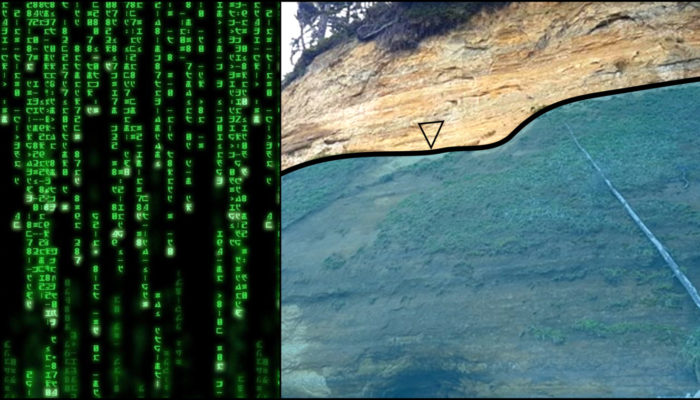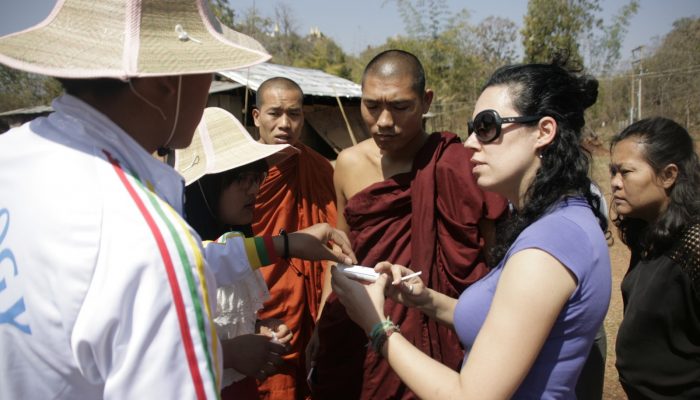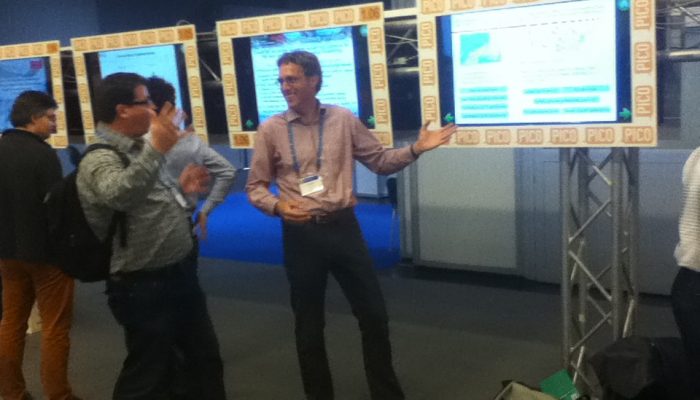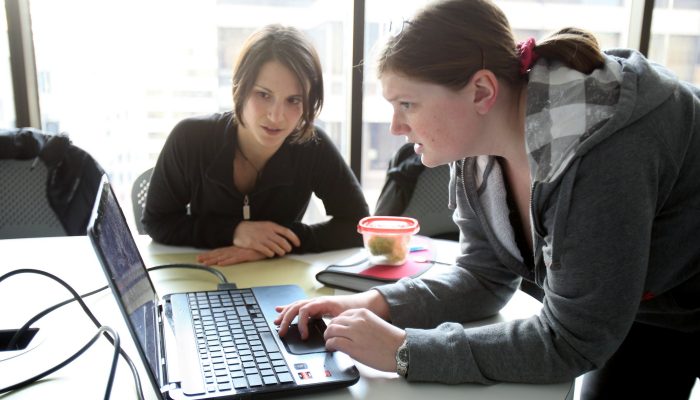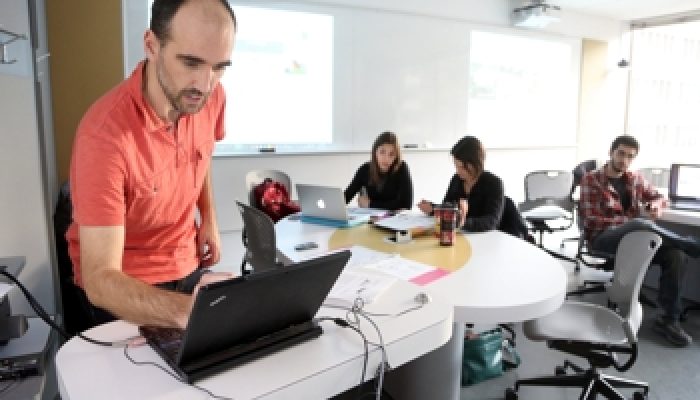Post by Sam Zipper (@ZipperSam), current Postdoctoral Fellow at the University of Victoria and soon-to-be research scientist with the Kansas Geological Survey at the University of Kansas. Using programming languages to interact with, analyze, and visualize data is an increasingly important skill for hydrogeologists to have. Coding-based science makes it easier to process and visualize large amount ...[Read More]
Groundwater and Education – Part two
Post by Viviana Re, postdoctoral researcher at the University of Pavia (Università di Pavia), in Italy. You can follow Viviana on Twitter at @biralnas. Part two of a two-part series on groundwater and education by Viviana. __________________________________________________ In my last post (“Drawing out groundwater (from the well)”) I wrote about the reasons why, as groundwater scientists, we shoul ...[Read More]
Two great science communication tools for conferences and teaching: smart screens and cell phones
A few weeks ago at the European Geosciences Union in Vienna I learned about two dead-easy and great science communication tools for conferences. These are great for any conference hall or meeting, but could be just as easily be used in the classroom to make a more exciting in class research presentations. For better or worse, most of us are carrying them (or looking at them!) right now: a smart s ...[Read More]
What busy profs would like to read in a blog post about active learning
During a great workshop today on active learning in engineering at McGill I asked two questions (using Socrative) , of the audience. Here is a summary of 24 answers I received: 1) I would like to read blog posts about: activities for large classes (18% of people) activities for small classes (30% of people) technology in active learning (22% of people) wacky or creative ideas for active learning(3 ...[Read More]
Surprises and lessons learned from co-teaching an inter-university graduate course
Contributed by Grant Ferguson, University of Saskatchewan grant.ferguson@usask.ca In an earlier blog post, Tom discussed some of the advantages and disadvantages of co-teaching a blended graduate course to students at McGill University, the University of Wisconsin – Madison and the University of Saskatchewan. This course wrapped up last month… we definitely learned a few things during ...[Read More]
Co-teaching a blended class across universities: why? and why not?
This term I am co-teaching a graduate class in advanced groundwater hydrology with Grant Ferguson (University of Saskatchewan) and Steve Loheide (University of Wisconsin – Madison). In co-developing and co-delivering this course we have learned a lot – I’ll start here with our initial motivations and write later about our pedagogic decisions, software tools and reflections after the course. It is ...[Read More]

